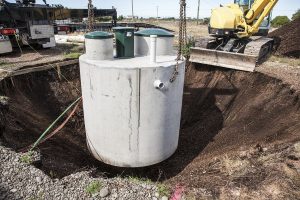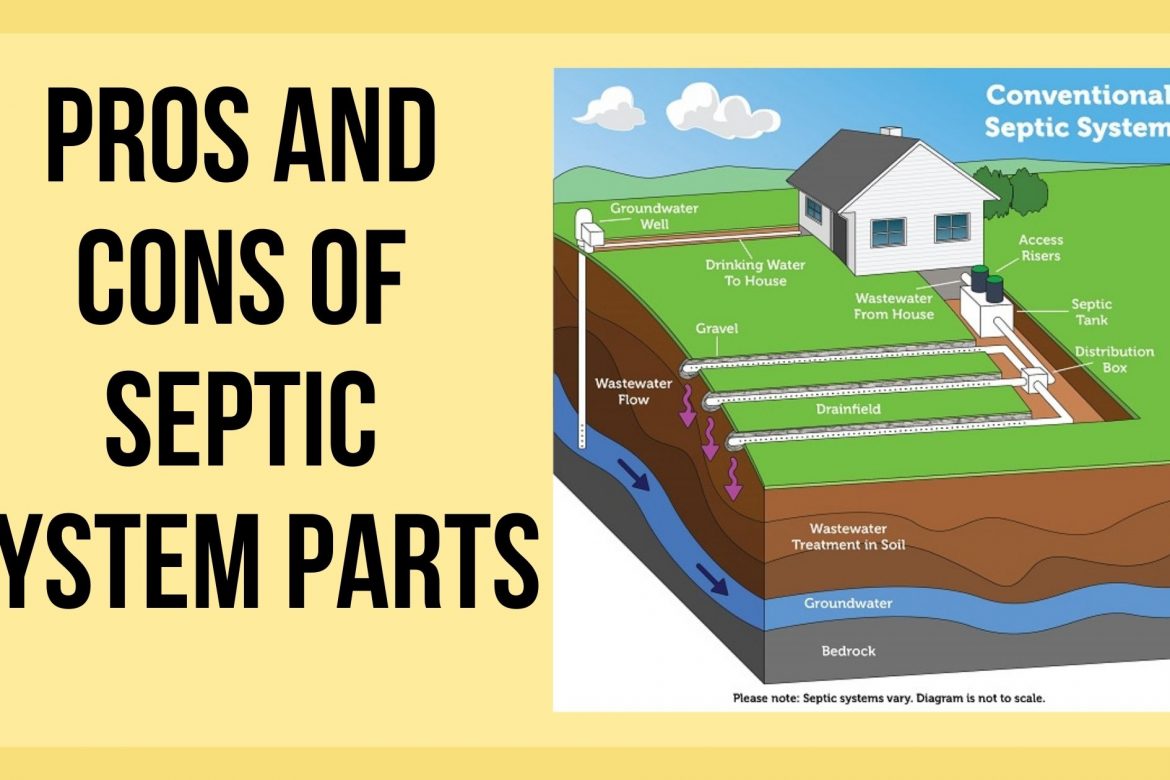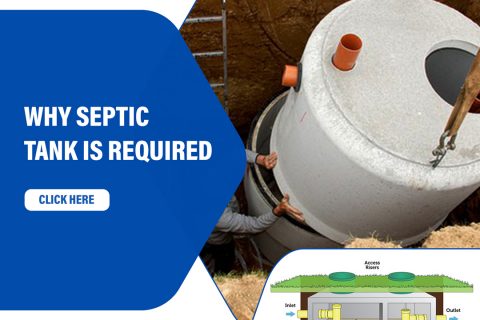A dedicated on-site septic tank system is one of the two main methods of discharging wastewater from residential and commercial facilities. This septic system requires a septic tank to be buried somewhere beside or behind the underground property.
A septic tank collects wastewater from toilets, showers, bathtubs, and other domestic drains. In a septic tank, solid waste settles to the bottom, forming what is called a sludge layer.
As much oil and grease as there is in the wastewater floats to the top and forms a layer of foam. Septic tanks have T-shaped chambers and outlets to prevent sludge and sludge from leaving the tank and entering your sewer. Only the sewage (or sewage) leaves the septic tank and goes into the sewer.
Advantage of Septic System Parts

A septic tank system has many advantages that make it better than septic tanks for many people. Whether you prefer one or the other depends on whether you have an independent and responsible sewer system or whether you prefer the reliability and convenience of sewer lines.
- Septic tank diversification: The main advantages of different types of septic tank systems range from durability and strength to low maintenance. Whether the type of tank is known for one quality or another depends on the material. However, tanks also have weaknesses in terms of material composition. Therefore, all types of septic tanks have advantages and disadvantages, which generally fall into the following categories:
- The glass fibre tanks: Fiber glass septic tanks are not sensitive to the major weaknesses of concrete and steel tanks. Unlike concrete tanks, fiberglass tanks will not crack, and unlike steel tanks, fiber glass tanks are rust-resistant. However, fiber glass septic tanks sometimes contain small amounts of sewage, usually as a result of moving piles to the bottom of the tank. A fiberglass tank is also lighter than other types of tanks, making it more susceptible to the weight above the ground and more sensitive to potential movement if the surrounding ground becomes wet.
- Aerobic tank septic tank: Electrically operated pneumatic septic tanks are often installed when previous tanks do not have special features. Air tanks are up to three times more expensive to sell than other types of septic tanks, but they are more efficient and require fewer drainage fields. Although they often require frequent and thorough maintenance, air tanks generally last for several years.
-
Obtain some cash
A septic tank can save you money in many ways, from installing it to selling your property.
A new sewage system is often much cheaper than installing sewer pipes in houses. If your home is on more than an acre of land, a sewer can be an inexpensive option. Since the sewage systems in each house are operated independently, there are no monthly costs for municipal sewage.
A properly installed and maintained septic tank is reliable for long service life.
-
Highly Efficient for Saving Money
Septic tanks give homeowners a reason to reap the benefits of greater water efficiency. According to the US Environmental Protection Agency, the average daily water use in a single-family home is 70 gallons per person. Doubling that amount in a year will add tonnes of water to your drainage.
Due to the large amount of water transported through drains and septic tanks daily, there are habits that people should follow to reduce the load on the sewer system. For example, maintenance-related failures occur less frequently. Some of the main causes of gradual wastewater pollution are:
Ineffective Loads: Your washing machine uses gallons of water in a 30 to 40 minute cycle. While washing machines and sewers are built to take such loads, some turn them on at least once a day. Because many of these spin cycles are done to wash only a few clothes at a time, this habit can be a waste of time.
Not only are thousands of gallons of water used each week, septic tanks and drains are also prone to maximum water and waste-anything that could end up in a clothes hamper. To reduce the load on the washing machine in the sewer, you can delay loading clothes until you have a full basket of dirty clothes.
Disadvantages of Septic System Parts

The disadvantages of septic tanks stem from the fact that maintenance and repairs are the responsibility of the homeowner. The capacity of sewer systems is also somewhat more limited than sewer pipes:
- Required Maintenance: One of the main disadvantages of sewage systems is the need for their maintenance. While septic tank maintenance is managed by the city, the cost of septic tank maintenance should be borne by the homeowner. A septic tank should be pumped every three to five years to avoid flooding.
- Sometimes it needs to be replaced: Unlike sewage systems, sewage systems cannot treat the volume of effluent above a certain threshold. Therefore, if the sewage system is filled with a large amount of sewage, it may fail. When this happens, the cleaning process can be difficult and expensive.
- Unaware of maintenance
One of the disadvantages of sewage systems is that ordinary homeowners are often unaware of the location of the drain, which is an important part of how the system works.
The design works like this: the pipes coming from the sink, toilet, washing machine, and sink lead to the septic tank where the water separates from the waste. From there, the waste goes to the drainage field, which consists of a network of pipes that filter the waste into the depths of the earth.
In many objects using this scheme, the new occupant will not be familiar with the construction of the system. Therefore, they can easily block or damage the evacuation field without knowing it.
In a nutshell
Knowing the proper and necessary methods of septic tank care and maintenance can extend the life of the on-site wastewater treatment system and increase its performance. The above-listed points will be helpful for you to use the septic system more efficiently.
Whether you prefer one treatment plant or another largely depends on whether you, as the owner, have the authority and responsibility to maintain your sewer system, or whether you prefer the security and convenience of a healthy connection to a central sewer system. Whatever decision you make, the most important thing is to be prepared for an emergency and to have a trusted plumber you can trust for routine plumbing work.



Leave a comment